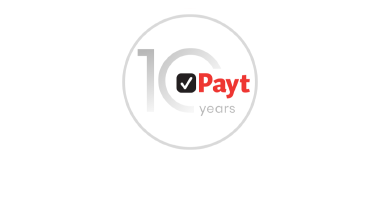Company culture: We are in no hurry

My name is Sander Kamstra, director and one of the founders of Payt. In growing from an attic idea to a serious organisation, I regularly encounter moments that I think have an impact on our company culture. With this series of blogs, I will try to describe every month a situation that shows who we are as a company. I will give you a glimpse into life at Payt.
The case: A customer wants to go live with a yet to be created piece of software, but by 1 March at the latest.
In the last 5 years, Payt has grown by an average of 50 percent per year. To be able to sustain this in the future, many factors are important. A very important factor is that we do not provide customisation. Of course, we now have hundreds of institutions that look like customisation, but are not. If we make something, it must meet a number of requirements. For example, the software must be useful for more customers and preferably be widely applicable. In addition, the software must be robust. What if we grow 10 times as large, will this software still work? What is the chance that this software is so interrelated with other code that the newly created piece will irrevocably break down in the future?
That is why we have chosen to spend a lot of time on design before we start building. And there is a review process for every code developed. We also spend a lot of time writing test scripts for new code. Putting the development team under time pressure has very unpleasant consequences for Payt. And it is not the primary code that is of poor quality, but for example the test scripts. You often only experience the consequences after about three years. When everyone has forgotten that the management caused the problems themselves three years earlier.
Now it sometimes happens that a customer does not want to go live until a new piece of functionality has been included. And that has to be done before 1 March, otherwise they will choose another company. We can write a nice turnover if we win that customer. We have not yet started building the software and our lead developer expects that it will be a matter of whether we make it to 1 March if we free up someone immediately. In previous years, we would have gone for it. The idea was that we would explain if we were unexpectedly unable to finish in time.
Now, we thank the customer for his interest in Payt. And we explain that it is unwise for us to issue deadlines. Not only for the reasons mentioned earlier. You also bring in a customer who is used to demanding custom-made solutions and to being able to hang a deadline on that. To our amasement, most customers choose to go live without the new functionality. And we have gained a tremendously motivated test customer for the software to be developed.
Related articles

It seems like everyone is working on separate projects, but everyone functions like a vital component of a unified system - Jake Eggen, Developer

If you're looking for a workplace with an excellent work environment, learning opportunities, and fantastic colleagues, then Payt Software is definitely worth considering - Ivan Malykh, Developer

